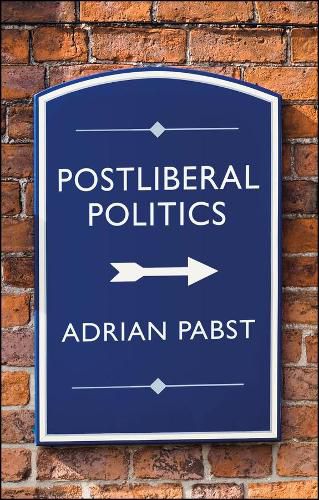Readings Newsletter
Become a Readings Member to make your shopping experience even easier.
Sign in or sign up for free!
You’re not far away from qualifying for FREE standard shipping within Australia
You’ve qualified for FREE standard shipping within Australia
The cart is loading…






Hyper-capitalism and extreme identity politics are driving us to distraction. Both destroy the basis of a common life shared across ages and classes. The COVID-19 crisis could accelerate these tendencies further, or it could herald something more hopeful: a post-liberal moment.
Adrian Pabst argues that now is the time for an alternative - postliberalism - that is centred around trust, dignity, and human relationships. Instead of reverting to the destabilising inhumanity of ‘just-in-time’ free-market globalisation, we could build a politics upon the sense of localism and community spirit, the valuing of family, place and belonging, which was a real theme of lockdown. We are not obliged to put up with the restoration of a broken status quo that erodes trust, undermines institutions and trashes our precious natural environment. We could build a pluralist democracy, decentralise the state, and promote embedded, mutualist markets.
This bold book shows that only a politics which fuses economic justice with social solidarity and ecological balance can overcome our deep divisions and save us from authoritarian backlash.
$9.00 standard shipping within Australia
FREE standard shipping within Australia for orders over $100.00
Express & International shipping calculated at checkout
Hyper-capitalism and extreme identity politics are driving us to distraction. Both destroy the basis of a common life shared across ages and classes. The COVID-19 crisis could accelerate these tendencies further, or it could herald something more hopeful: a post-liberal moment.
Adrian Pabst argues that now is the time for an alternative - postliberalism - that is centred around trust, dignity, and human relationships. Instead of reverting to the destabilising inhumanity of ‘just-in-time’ free-market globalisation, we could build a politics upon the sense of localism and community spirit, the valuing of family, place and belonging, which was a real theme of lockdown. We are not obliged to put up with the restoration of a broken status quo that erodes trust, undermines institutions and trashes our precious natural environment. We could build a pluralist democracy, decentralise the state, and promote embedded, mutualist markets.
This bold book shows that only a politics which fuses economic justice with social solidarity and ecological balance can overcome our deep divisions and save us from authoritarian backlash.